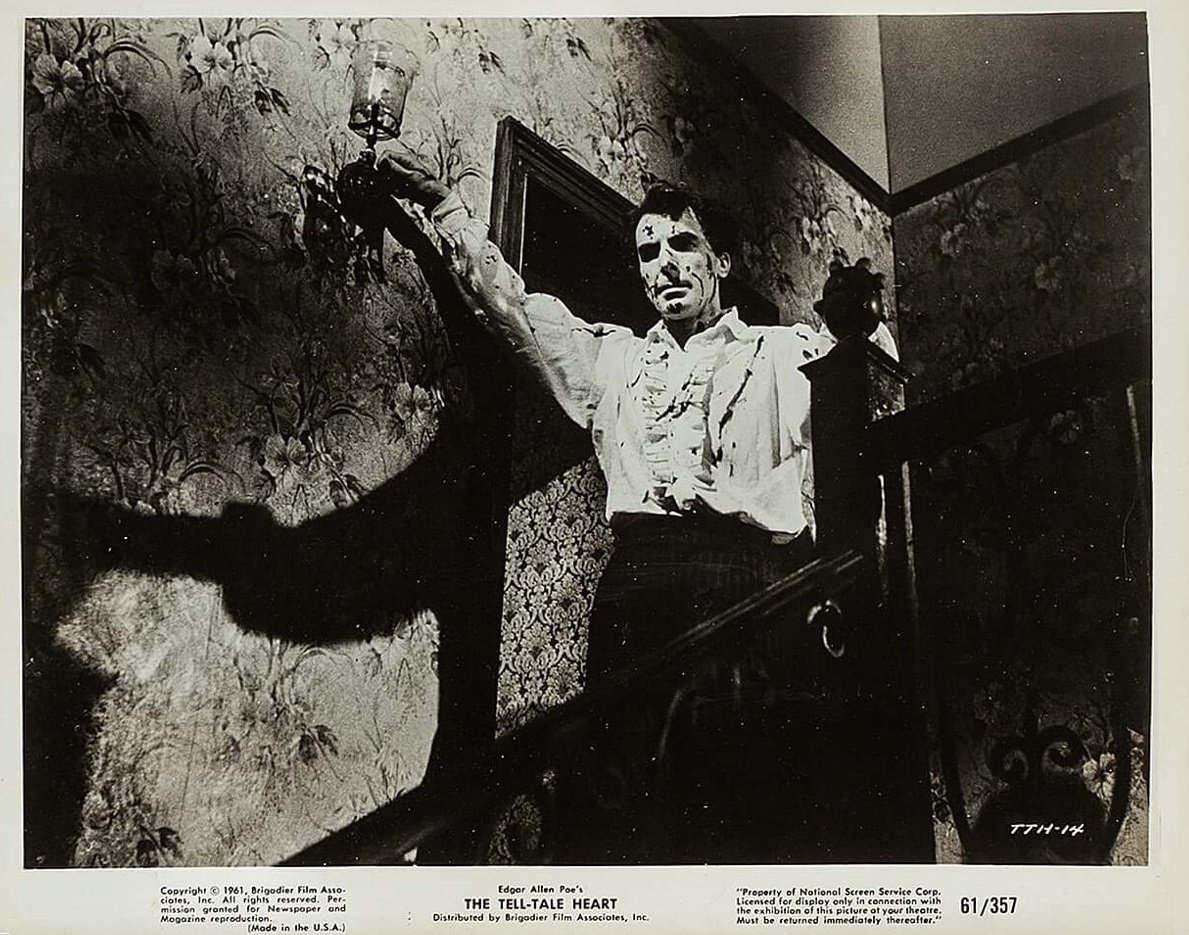
The Tell-Tale Heart (1960)
“I like this room. It is serene and tranquil and the view is to be admired!”
Ready for a film which takes a simple conceit and turns it into a confusingly-plotted slog? Of course you are. Welcome to 1960, when someone decided that what the world really needed was yet another version of the old Edgar Allan Poe tale of murder and regret, with added unexplained dream-sequence story-within-a-story and related dual role. And a bonce-scratching circular narrative. And then (if the state of what is only a 65-year-old film is anything to go by) put it in the bin for a couple of decades, before fishing it out and leaving it on a windowsill for another couple of decades. And then ran it over with their car. Repeatedly.
So we start at the end, with a distressed man (Laurence Payne) coming downstairs to the sound of a heartbeat, and seeing the floorboards of his living room moving up and down to the beat.
It’s all a dream, cooked up in the brain of the author, Mr Poe (Laurence Payne, again). He’s at home in the Rue Morgue and clearly unwell, but refusing to send for a doctor and relying on his own stash of drugs.
But then – confusingly – he’s fine. And having a drink in a bar. And although his first name remains Edgar, he’s now Edgar Marsh. And still Laurence Payne. Got that?
Anyway, Edgar is absolutely desperate to hook up with someone. But at the same time absolutely terrified of women. Even the local safe bet, Elsie (Elizabeth Paget).
So instead he mopes around, feeling sorry for himself, in a way that really is quite annoying. Edgar’s only pleasure is derived from flicking through his collection of saucy postcards (this is what we did before iPhones, kids) – until he spies a new neighbour who’s a cut above your bargain basement Elsies.
The new neighbour is florist Betty Claire (Adrienne Corri), a woman who is clearly out of Edgar’s league. He can see straight into her bedroom from his window, and he’s entranced by the way she brushes her hair of an evening, blissfully unaware that the street’s pathetic creepy perv-boy is gazing longingly at her. Edgar confides his love to his friend Carl (Dermot Walsh), who suggests he goes for it. Edgar is worried about getting a slap in the face, but Carl tells him it’s a risk worth taking.
And so Edgar takes Betty on an excruciating series of dates, which are clearly already about to come to a natural end when handsome Carl (who has been away) arrives on the scene and immediately turns the head of fickle Betty.
Things go the way you’d expect, and it has to be said that Betty is immediately going to regret not closing her bedroom curtains (and yes, on this occasion you can take that as a euphemism, it works both ways).
This strange little film is an oddity. It doesn’t really stop to explain what’s going on, or why, and is only enlivened by the manifestations of Edgar’s guilt and what can only be described as a sustained poker attack. And no, now I’m NOT talking about Betty and Carl’s bedroom shenanigans. Although once again, it works both ways.
To be fair, writer Brian Clemens (yes, really) was attempting to do something different with what is already a slight story, and one that everyone knows. So you can see why he went for the tricksy narrative approach. But at the end of the day, it’s not really enough to raise the endeavour to the level of some of his more iconic later British horror efforts.
